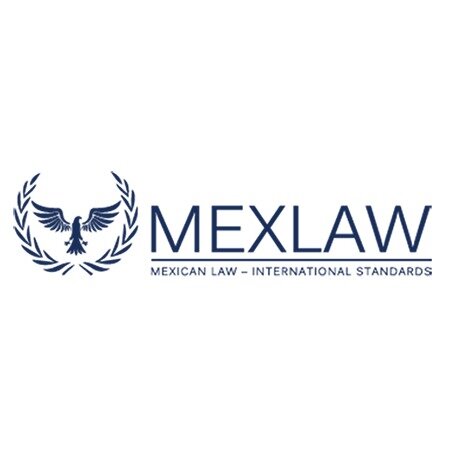Best Antitrust Litigation Lawyers in Mexico
Share your needs with us, get contacted by law firms.
Free. Takes 2 min.
Or refine your search by selecting a city:
List of the best lawyers in Mexico
About Antitrust Litigation Law in Mexico
Antitrust litigation in Mexico concerns legal disputes and enforcement actions related to the rules that promote economic competition and prohibit unfair or monopolistic practices. The principal objective of antitrust law is to ensure open and fair markets, prevent abuse of market power, and protect consumers and businesses from practices that restrict competition. Antitrust issues can appear in a variety of business operations, from mergers and acquisitions to pricing strategies and supplier agreements. In Mexico, enforcement and oversight are carried out primarily by the Federal Economic Competition Commission (Comisión Federal de Competencia Económica, or COFECE) and, in certain areas, the Federal Telecommunications Institute (IFT).
Why You May Need a Lawyer
Individuals and businesses may need an antitrust lawyer in several common scenarios:
- Facing an investigation by COFECE or IFT for potential anticompetitive practices such as price-fixing, market division, bid-rigging, or abuse of dominance
- Preparing for or responding to litigation regarding unfair competition or monopolistic practices
- Challenging or defending merger notifications and approvals
- Seeking compliance advice to ensure company policies align with antitrust regulations
- Pursuing damages or remedies due to losses caused by competitors' anticompetitive conduct
- Negotiating leniency agreements or settlements with regulatory authorities
- Understanding how antitrust laws affect cross-border transactions involving Mexico
Antitrust litigation is often complex and highly specialized, requiring thorough knowledge of both local law and the economics of competition. Legal assistance helps protect your interests and reduces the risk of severe penalties.
Local Laws Overview
Mexico’s antitrust legal framework is anchored by the Federal Economic Competition Law (Ley Federal de Competencia Económica or LFCE). The law prohibits:
- Absolute monopolistic practices such as agreements between competitors to fix prices, limit production, or share markets
- Relative monopolistic practices, which may include abuse of dominance, exclusive dealing, predatory pricing, and tying arrangements
- Illegal mergers or acquisitions that may substantially reduce competition
The COFECE is responsible for investigating, administratively prosecuting, and sanctioning most antitrust violations, while the IFT regulates competition in telecommunications and broadcasting. Violations can result in severe fines, criminal sanctions, and the nullification of contracts found to be in breach of the law. Special procedures exist for leniency (reduction in sanctions for early cooperation) and for undertakings made by businesses to restore competition. Judicial review is possible before specialized courts or constitutional courts.
Frequently Asked Questions
What is an antitrust violation under Mexican law?
An antitrust violation in Mexico includes practices that unfairly restrict competition, such as price-fixing, collusion, abuse of market dominance, and certain mergers or acquisitions that can harm the competitive process.
Who enforces antitrust laws in Mexico?
The Federal Economic Competition Commission (COFECE) handles most sectors, while the Federal Telecommunications Institute (IFT) oversees the telecommunications and broadcasting industries.
What are the penalties for breaking antitrust laws?
Penalties may include administrative fines that can reach up to ten percent of the offender's income, disqualification from management roles, and, in some cases, criminal prosecution and imprisonment.
Can individuals and companies file private lawsuits for antitrust violations?
Yes. Individuals and companies harmed by anticompetitive practices can file private damage claims after COFECE or IFT have determined a violation has occurred.
How is cartel activity investigated?
COFECE and IFT may initiate investigations after complaints, whistleblower reports, or their own market monitoring. Investigations can include document requests, interviews, and on-site inspections known as “dawn raids.”
What is leniency in antitrust cases?
Leniency programs allow businesses or individuals involved in a cartel to voluntarily come forward, cooperate with authorities, and obtain reduced sanctions or immunity in exchange for their assistance.
What is considered abuse of dominance?
Abuse of dominance refers to a company with substantial market power engaging in conduct that unfairly limits competition, such as refusing to supply essential inputs, imposing unfair prices, or tying sales of products.
Are mergers and acquisitions reviewed for antitrust issues?
Yes. Certain mergers and acquisitions that surpass financial thresholds must be notified to and reviewed by COFECE or IFT to ensure they do not harm competition.
What rights do companies have during investigations?
Companies subject to investigation have due process rights, including the right to legal representation, to review evidence, to present defensive arguments, and to challenge adverse rulings before specialized courts.
How long do antitrust investigations and litigation take?
Timelines can vary from a few months to several years depending on the complexity of the case, the volume of evidence, and potential appeals or judicial reviews.
Additional Resources
- Federal Economic Competition Commission (COFECE) - Mexico's primary competition authority
- Federal Telecommunications Institute (IFT) - Regulator for telecommunications and broadcasting competition issues
- Specialized Competition Courts - Judicial bodies handling appeals and reviews in antitrust matters
- Mexican Bar Association (Barra Mexicana, Colegio de Abogados) - Source for referrals to qualified competition lawyers
- Consumer Protection Federal Agency (PROFECO) - For related consumer enforcement actions
These resources offer guidance, publications, and assistance for businesses and individuals navigating antitrust litigation in Mexico.
Next Steps
If you believe you are involved in, or impacted by, antitrust issues in Mexico, taking action early is crucial. Here is how to proceed:
- Document any communications, agreements, or dealings related to the potential antitrust matter
- Consult with a lawyer skilled in competition and antitrust law to evaluate your situation and understand your rights
- If you are responding to a formal inquiry, seek legal advice immediately to protect your interests and ensure proper handling of requests
- Review your business practices for compliance with local competition laws, especially if engaging in mergers or joint ventures
- Reach out to COFECE, IFT, or the Mexican Bar Association for official guidance or referrals
Taking these preliminary steps can help safeguard your position, minimize risks, and ensure you receive informed legal support throughout the process.
Lawzana helps you find the best lawyers and law firms in Mexico through a curated and pre-screened list of qualified legal professionals. Our platform offers rankings and detailed profiles of attorneys and law firms, allowing you to compare based on practice areas, including Antitrust Litigation, experience, and client feedback.
Each profile includes a description of the firm's areas of practice, client reviews, team members and partners, year of establishment, spoken languages, office locations, contact information, social media presence, and any published articles or resources. Most firms on our platform speak English and are experienced in both local and international legal matters.
Get a quote from top-rated law firms in Mexico — quickly, securely, and without unnecessary hassle.
Disclaimer:
The information provided on this page is for general informational purposes only and does not constitute legal advice. While we strive to ensure the accuracy and relevance of the content, legal information may change over time, and interpretations of the law can vary. You should always consult with a qualified legal professional for advice specific to your situation.
We disclaim all liability for actions taken or not taken based on the content of this page. If you believe any information is incorrect or outdated, please contact us, and we will review and update it where appropriate.
Browse antitrust litigation law firms by city in Mexico
Refine your search by selecting a city.

















